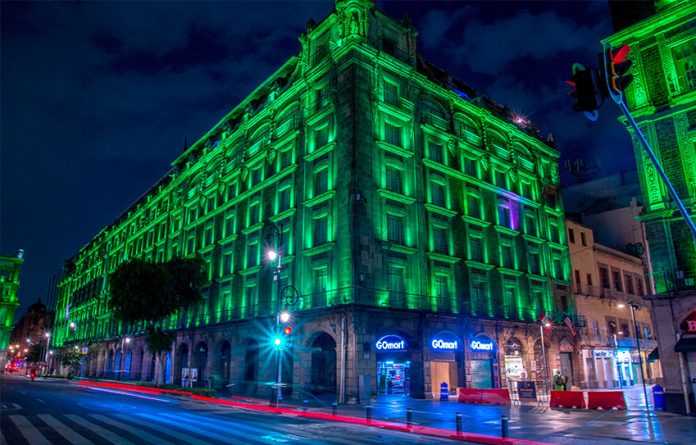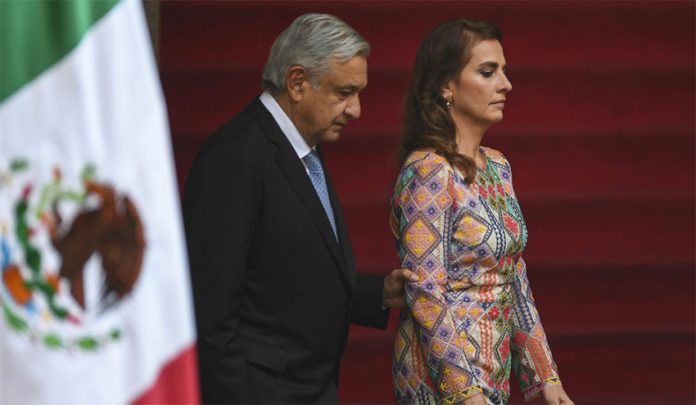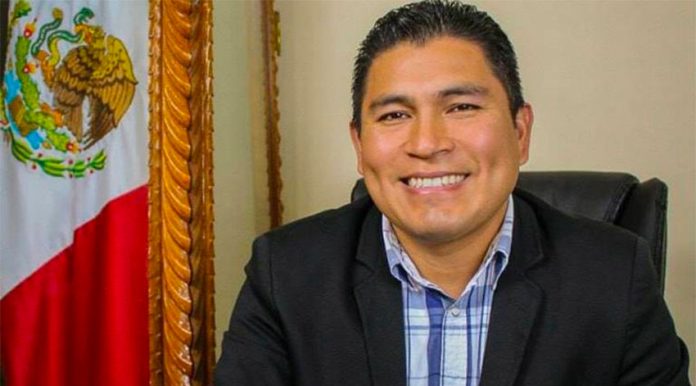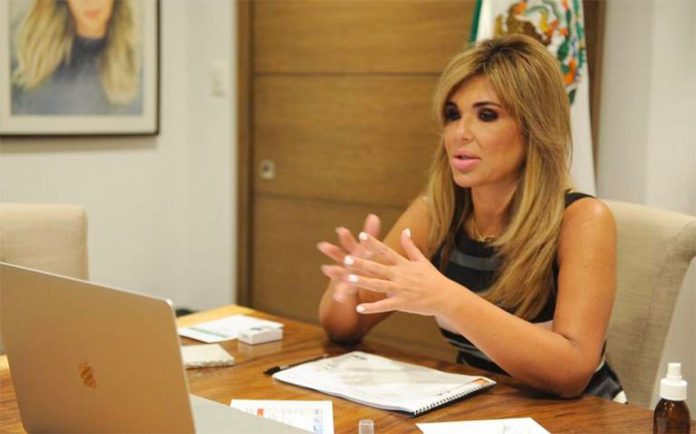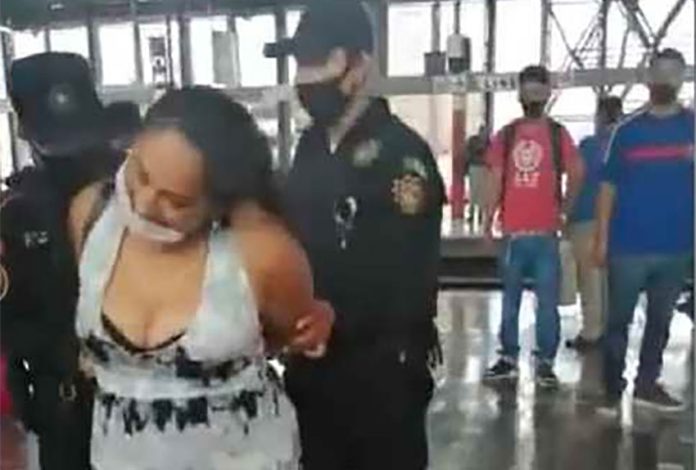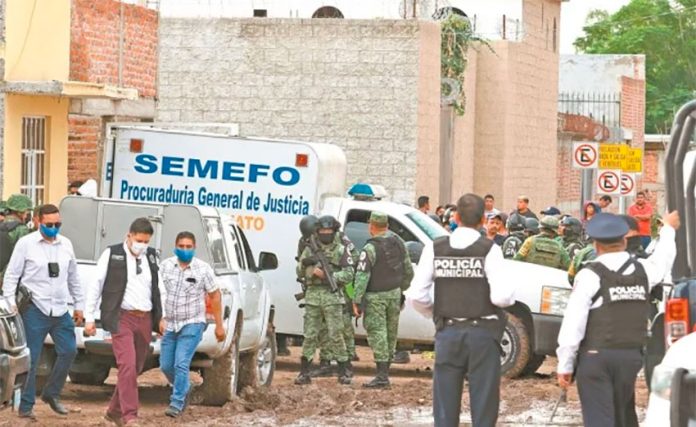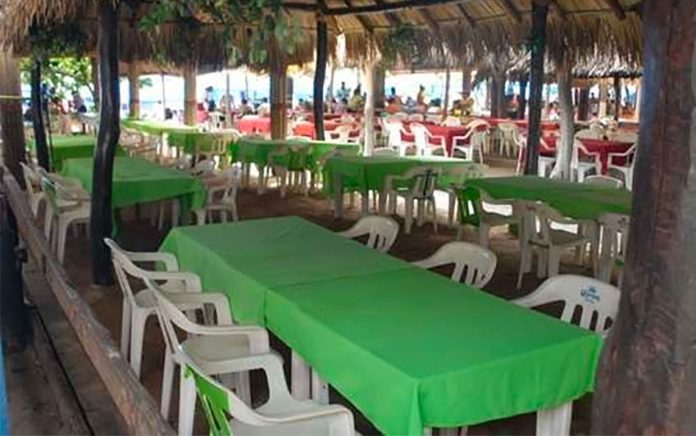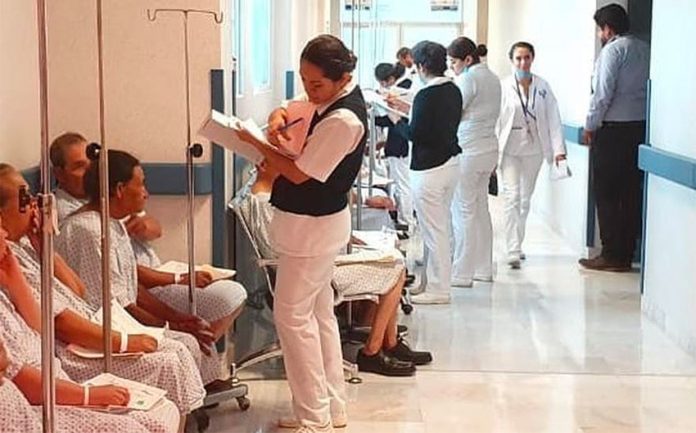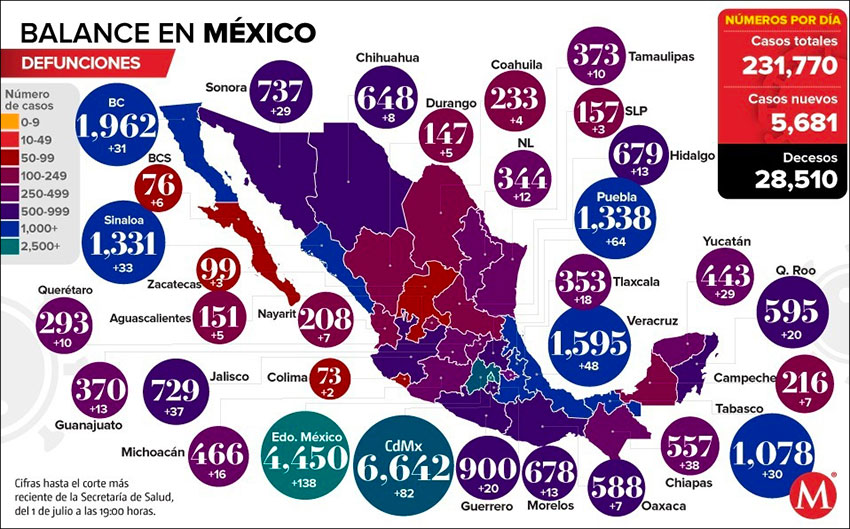Government buildings in Mexico City are being lit up in green for 12 days to celebrate the International Year of Plant Health.
The green lights on buildings, roads and monuments such as the Glorieta de la Palma, the Fuente de la Diana Cazadora, the Jardín Winston Churchill, the Fuente de Petróleos, the Puerta Santa Fe and the Chapultepec Aqueduct were turned on June 29 and will remain lit until July 10 in accordance with the United Nations proclamation issued in 2018 to celebrate healthy plants in 2020.
“The year is a once in a lifetime opportunity to raise global awareness on how protecting plant health can help end hunger, reduce poverty, protect the environment and boost economic development,” the United Nations says.
As part of the commemoration, the Ministry of Agriculture and Rural Development and the National Health, Safety and Agro-Food Quality Service are conducting a virtual forum celebrating 120 years of plant health in Mexico, in which members of at least half a dozen national and international organizations will participate.
In a related video conference in late June, plant expert Jesús García Ávila of the Autonomous University of Chapingo stated that plants must be safeguarded as they contribute 80% of the world’s food supply and provide about 98% of oxygen. In Mexico, García reported, there are 32 plant health committees and 206 local boards that serve nationwide.
Keeping crops pest-free is the mandate of Mexico’s Agricultural Parasitology Commission, which was founded in 1900 to protect plant resources from the spread or introduction of insects and to preserve food security, biodiversity and facilitate trade. Currently, Mexico has 37 active insect infestations.
Although much of the country and the world’s attention is focused elsewhere due to the coronavirus pandemic, plant health remains vital to the world’s food supply, García said.
Source: El Financiero (sp), AF Medios (sp)
